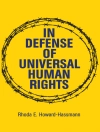This is the first scholarly book to examine the UN Sustainable Development Goals from an indigenous perspective and, specifically, with reference to the right to self-determination. It refers to the UN Declaration on the Rights of Indigenous Peoples and domestic instruments such as New Zealand’s Tiriti o Waitangi to suggest how the goals could be revised to support self-determination as a more far-reaching and ambitious project than the goals imagine in their current form. The book primarily draws its material from Australia, Canada, and New Zealand to support analysing the goals’ policy relevance to wealthy states and the political claims that indigenous peoples make in established liberal democracies.
Содержание
Chapter 1: Introduction.- Chapter 2: Leaving Nobody Behind: policy integration policy reform.- Chapter 3: Indigenous Peoples: policy, culture, and the goals.- Chapter 4: Freedom and Culture: beyond egalitarian justice.- Chapter 5: The Just State.- Chapter 6: Participation and Presence.- Chapter 7: National Values, the Goals, and the Right to Self-determination.- Chapter 8: Self-Determination, Participation, and Leadership.- Chapter 9: Quality Education.- Chapter 10: Economic Growth.- Chapter 11: Data Sovereignty – what is measured and why?.- Chapter 12: Conclusion.
Об авторе
Dominic O’Sullivan is Professor of Political Science at Charles Sturt University, Adjunct Professor at the Auckland University of Technology and Academic Associate at the University of Auckland. He is from the Te Rarawa and Ngati Kahu iwi of New Zealand, and this is his ninth book. The most recent,
Sharing the Sovereign: Indigenous Peoples, Recognition, Treaties and the State was published by Palgrave in 2021.












